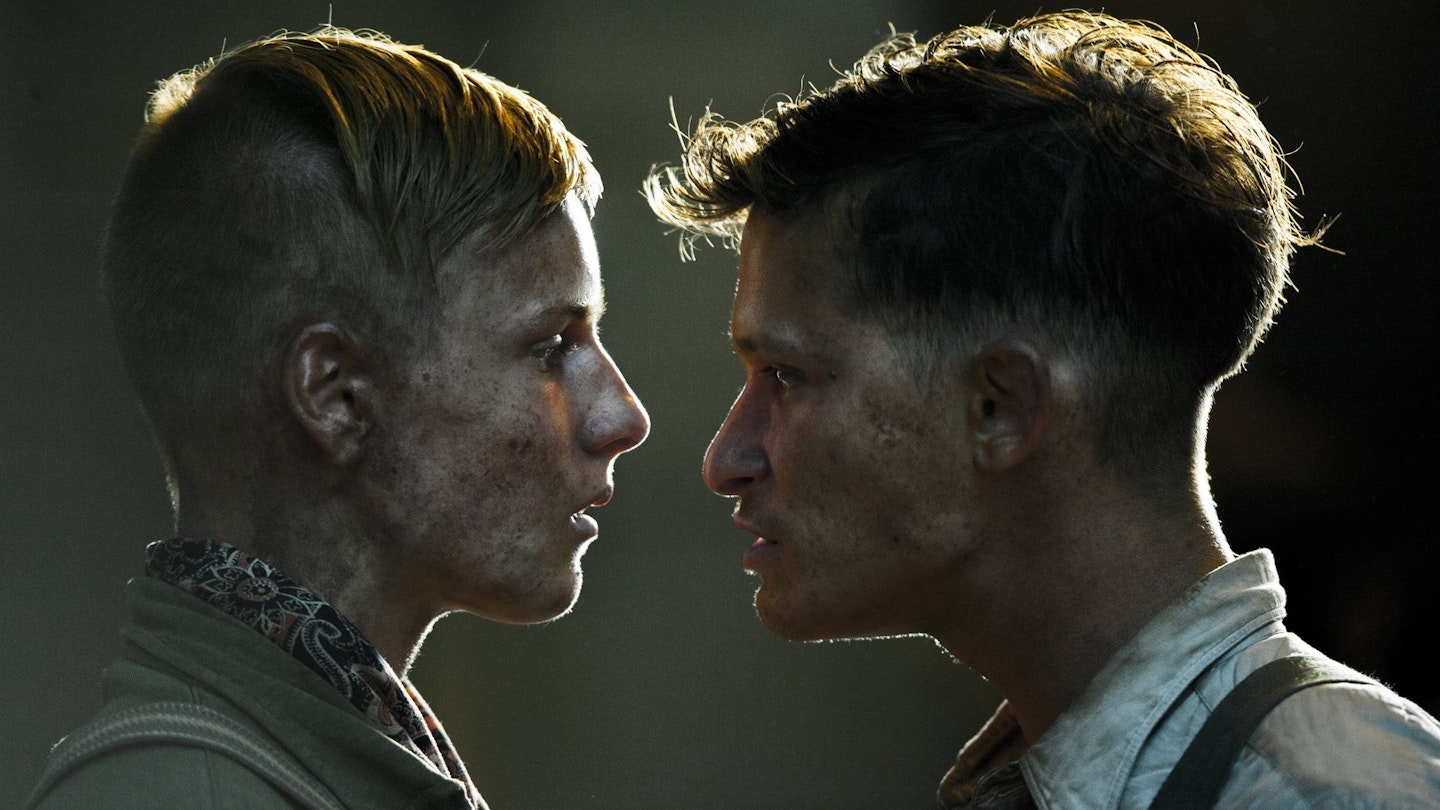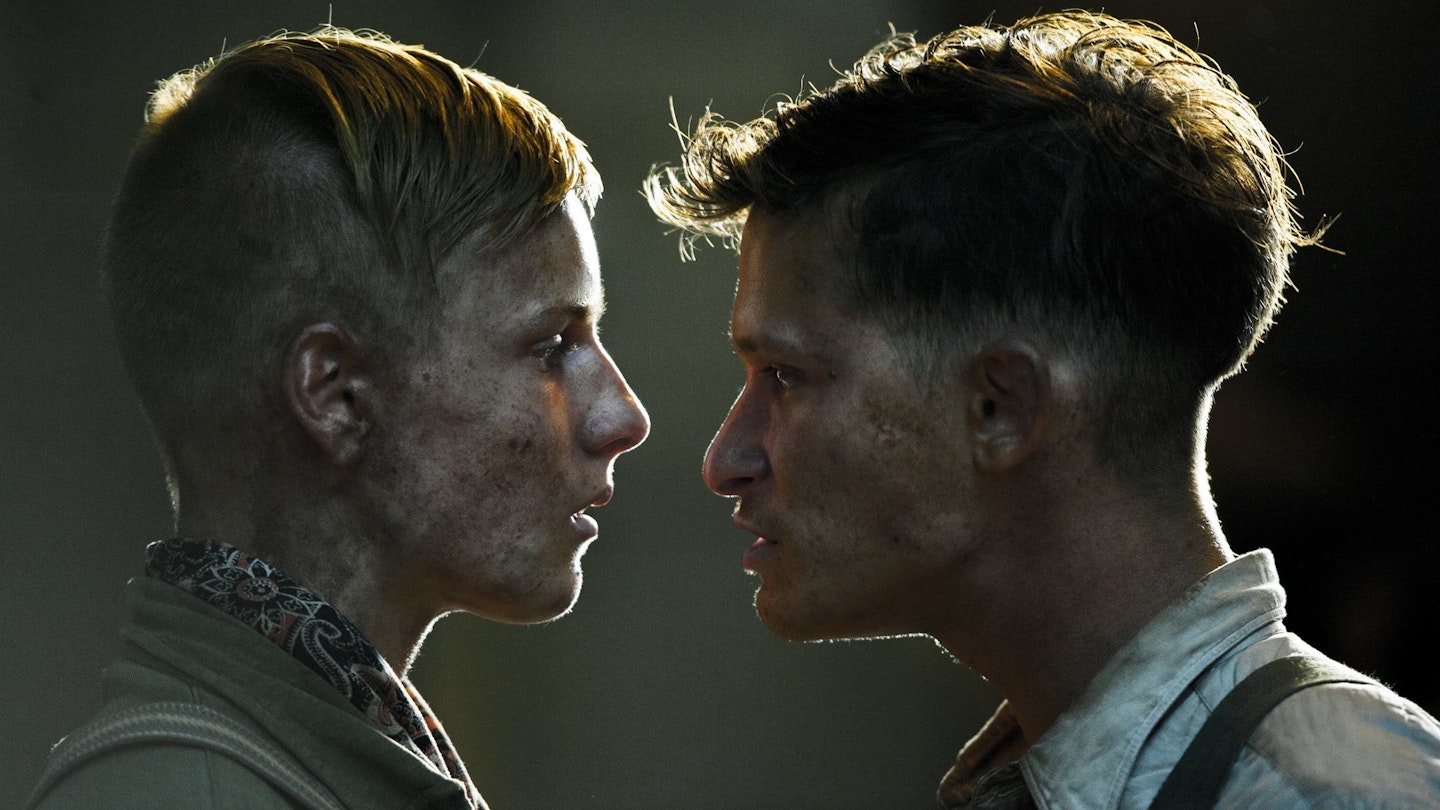Surprisingly few films have focused on the repatriation and reprisals that took place on mainland Europe in the immediate aftermath of World War II. Lacking the derring-do of combat recreations, stories about collaborators, refugees and survivors run the risk of trivialising emotive situations and demonising those exacting pitiless revenge on erstwhile occupiers.
In his third feature, Dane Martin Zandvliet is confronted with the prospect of sentimentalising the hapless German adolescents that Hitler had drafted into the Wehrmacht as cannon fodder during the last days of the conflict. Little more than kids caught in the wrong place at the wrong time, the 14 rookies dispatched to clear a stretch of beach of thousands of landmines scarcely deserve the hatred that paratrooper Sgt Rasmussen (Møller), superior Lt. Jensen (Mikkel Følsgaard) and widow Karin (Laura Bro) feel towards them. But, by failing to delve into their backgrounds, Zandvliet struggles to elicit sufficient empathy for their grotesque plight.
A fascinating topic is attenuated by conservative storytelling and sketchy characterisation.
It could be argued that Rasmussen is too blinded by rage to bother discriminating between the pragmatic Sebastian (Louis Hofmann), the resentful Helmut (Joel Basman) or callow twins Ernst and Werner (Emil and Oskar Belton). But his fury booms somewhat hollowly because we learn nothing of its causes. Has he been in uniformed exile or fighting for the underground for the last five years, or has he been a humiliated citizen mourning his loved ones? Similarly, while Rasmussen gets to know his charges well enough to steal food from the local field hospital and organise football matches to boost their morale, the audience is left none the wiser about their personalities and roots. Thus, when they are killed or maimed by detonated mines, their lack of empathetic humanity means they merely become statistics rather than tragic casualties.

Zandvliet also ducks many of the moral issues raised by this little-known episode in Danish history, which breached the terms of the Geneva Convention that had been signed in 1929 to guarantee the welfare of wartime prisoners. By rendering Jensen so callously cruel, Zandvliet makes it easy for Rasmussen to disobey orders and reclaim his essential decency by withholding the news that Wilhelm (Leon Seidel) has died of his disfiguring wounds and by helping the malnourished youths purge themselves with sea water after they eat animal feed laced with rat droppings. But there's no discussion of how such transgressions impinge upon Rasmussen's sense of duty and the obligation he has to his recently liberated compatriots to finish his task with the minimum inconvenience as they strive to return to normalcy. Instead of exploring the wider implications of Rasmussen pilfering scarce food supplies and prioritising his word of honour over the greater good, Zandvliet plumps for maudlin melodramatics involving his faithful dog and Karin's sad-eyed daughter.
Yet the sequences centring on the prisoners prodding the sand with metal rods as they crawl on their bellies are excruciatingly tense, especially when Zandvliet cross-cuts between close-ups of rusty metal and rapt concentration during the delicate unscrewing of percussion caps and the removal of fuses. Moreover, he wisely rations the explosions with a precision that keeps the viewer in a constant state of apprehension, even when the POWs return to their carefree childhood during those precious moments of relaxation when Camilla Hjelm's camera is allowed to roam over the dunes and tideway that the German High Command had been convinced would be the preferred Allied landing ground for a massed invasion.
